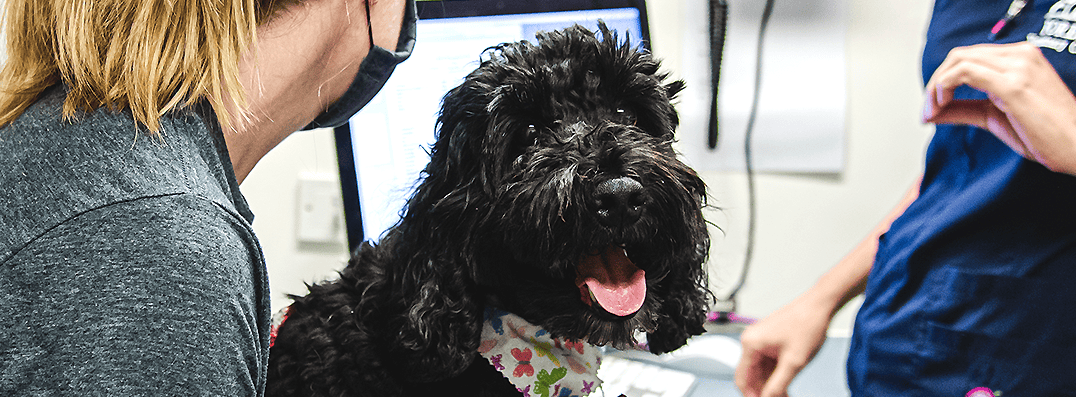Alabama Rot, also known as Cutaneous and Renal Glomerular Vasculopathy (CRGV), is a rare but serious and potentially life-threatening disease that affects dogs. While it's relatively rare, it's crucial for dog owners to be aware of this condition, understand what it is, and learn how to protect their furry companions from it. In this blog, we'll delve into what Alabama Rot is, its symptoms, and most importantly, how you can take preventive measures to keep your beloved dog safe.
Understanding Alabama Rot
Alabama Rot is still not fully understood. It was first discovered in the United States in the 1980s, and by the 2000s, it had spread to the UK. The condition damages the blood vessels in the skin and kidneys, which can result in skin lesions and kidney failure. Alabama Rot is thought to be caused by toxins produced by certain bacteria, but researchers are still investigating the cause.
Symptoms of Alabama Rot
The symptoms of Alabama Rot can vary, but the most common signs to watch out for include:
Skin lesions
The disease often starts with small, red sores or ulcers on the skin, usually on the paws, legs, face, or belly. These can progress rapidly, leading to open sores and scabs.
Lethargy
Affected dogs may become lethargic, lose their appetite, and seem generally unwell.
Vomiting and diarrhoea
Some dogs may experience vomiting and diarrhoea as the disease progresses.
Kidney failure
In severe cases, Alabama Rot can lead to kidney failure, which can be fatal if not treated promptly.
Understanding high-risk seasons and areas
Alabama Rot appears to have a seasonal pattern, with most reported cases occurring between November and May, when wet and muddy conditions are more common. Keep a close eye on your dog's health and skin during this period, and consider reducing outdoor activities in high-risk areas.
Certain regions have seen more cases of Alabama Rot than others. Staying informed about the disease's prevalence in your area is essential. Local veterinary clinics and online forums may provide updates on reported cases and areas to avoid. Traveling with your dog can also pose risks if you visit an area with a history of Alabama Rot. In such cases, speak with your local vets for advice on safe places to visit.
See a live map of Alabama Rot Cases
Protecting your dog from Alabama Rot
While the exact cause of Alabama Rot remains uncertain, there are steps you can take to reduce the risk of your dog contracting this disease:
Maintaining good hygiene
Regularly clean and inspect your dog's paws, especially after walks in muddy or wooded areas. This can help you spot any early signs of skin lesions.
Avoiding wet and muddy areas
Alabama Rot cases often coincide with wet and muddy conditions. Try to limit visits to areas with these conditions, especially during rainy seasons.
Keeping your dog clean after walks
After walks in potentially contaminated areas, thoroughly wash and dry your dog, paying extra attention to their paws and belly.
Monitoring for symptoms
Be vigilant about any unusual changes in your dog's behaviour or appearance, such as skin lesions, lethargy, vomiting, or diarrhoea. If you notice any of these signs, consult your vet immediately.
Staying informed
Stay updated on Alabama Rot cases in your area with Anderson Moores Veterinary Clinic’s live map of Alabama Rot cases. This will help you to learn which areas have been recently confirmed with cases. Your local vet in Essex will also be able to let you know more about any cases nearby.
If you suspect your dog may have Alabama Rot, seek veterinary care promptly. Early diagnosis and treatment can significantly improve the chances of recovery.
Book an appointment online for a health check-up
Alabama Rot treatment for your dog
Supportive care is an important part of treating Alabama Rot patients. If your dog is found to have the condition, your vet may recommend intravenous (IV) fluids to support kidney function and keep them hydrated. Additionally, they may provide if needed to treat any secondary bacterial infections that might develop as a result of a compromised immune system.
It's crucial to carefully follow your vet’s instructions and to give any prescription drugs as instructed. Regular follow-up sessions are essential to track your dog's progress and make any required modifications to their treatment plan.
How To Keep Your Dog Safe From Alabama Rot
Alabama Rot is a rare but potentially devastating disease that every dog owner should be aware of. By maintaining good hygiene practices, monitoring your dog's health, and seeking prompt veterinary care if needed, you can reduce the risk to your beloved furry friend. Remember that awareness and preventive measures are key to ensuring your dog's well-being and happiness.
If you have any questions, please get in touch with us.

